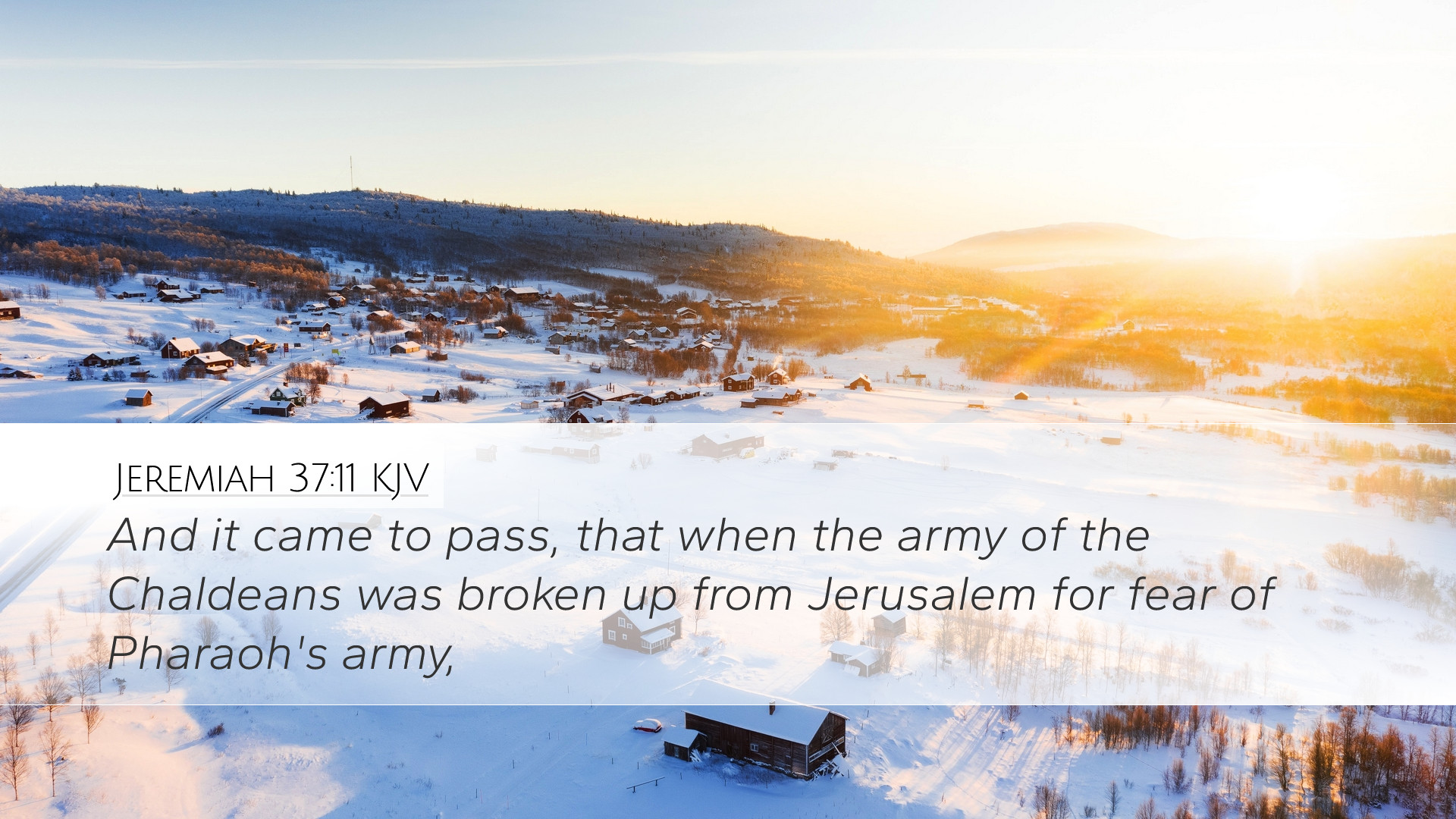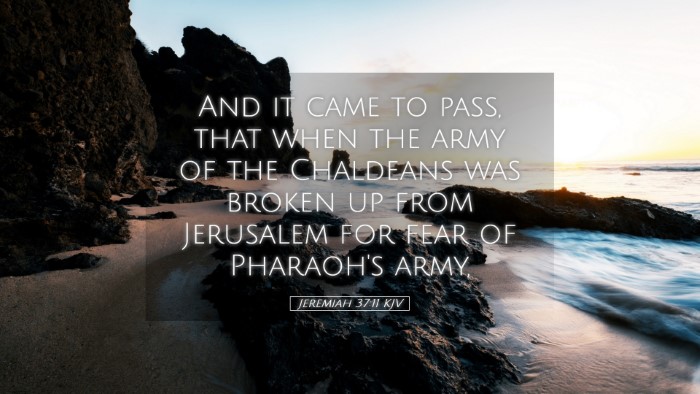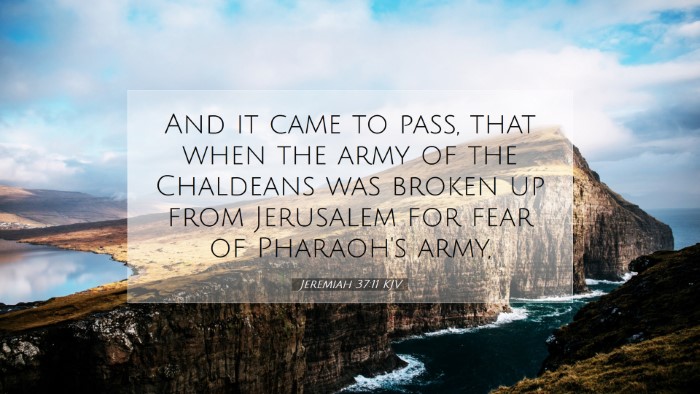Commentary on Jeremiah 37:11
Jeremiah 37:11 states: "And it came to pass, that when the army of the Chaldeans was broken up from Jerusalem for fear of Pharaoh's army." This verse marks a significant moment in the narrative of the prophet Jeremiah, reflecting the socio-political climate of Jerusalem during a time of siege and turmoil.
Historical Context
This passage occurs during the late 7th century BC, a period characterized by intense conflict and the looming threat of Babylonian domination. The Chaldean army, representing Babylon, was besieging Jerusalem when they temporarily withdrew due to the advancing forces of Pharaoh Hophra of Egypt. This political maneuvering is critical for understanding Jeremiah's prophetic ministry.
Insight from Matthew Henry
Matthew Henry provides a profound reflection on this verse, emphasizing the transitory nature of military power and the sovereign hand of God in historical events. He articulates that the withdrawal of the Chaldeans illustrates God’s ability to intervene in human affairs:
"It is God that brings down one and sets up another; His hand is upon the wheels of state and the affairs of men."
Henry encourages readers to interpret this event not merely as a military setback for Babylon but as a divine providence orchestrating the fate of His people.
Insights from Albert Barnes
Albert Barnes, in his commentary, highlights the psychological impact of this military withdrawal on the people of Jerusalem. He notes that this moment instilled both fear and hope:
"The departure of the Chaldeans was a mixed blessing; it gave the people room for a momentary respite but also a false sense of security."
Barnes argues that Jeremiah's prophetic voice during this time served as a reminder of the need for genuine repentance and not to be swayed by the temporary absence of danger. He emphasizes that true restoration comes not from political alliances but from a return to God.
Insights from Adam Clarke
Adam Clarke adds a nuanced discussion about the sociopolitical dynamics at play. He identifies that the fear of Pharaoh's army forced the Chaldeans to retreat, suggesting the complex interplay of alliances and enmity:
"The Chaldeans were in a strategic position, but fear of the Egyptian might lost them their advantage, showing their vulnerability."
Clarke further reflects on the prophetic implications of such a withdrawal, noting that it served as a precursor to the final acts of judgment against Jerusalem. For Clarke, this moment symbolizes the shifting tides of power and serves as a prelude to God’s ultimate plan for reclamation and restoration.
Theological Reflections
-
The Nature of Prophetic Truth:
This verse challenges modern readers to contemplate the role of the prophet amidst changing circumstances. Prophets like Jeremiah were called to speak God's truth against the backdrop of political shifts.
-
Human Agency and Divine Sovereignty:
The interplay between human decisions (the Chaldeans’ retreat) and divine commandments is evident, inviting readers to reflect on how God uses human actions for His divine purposes.
-
Temporary Relief vs. Lasting Change:
This verse serves as a cautionary tale against mistaking temporary relief for divine approval. The people of Jerusalem had to confront their spiritual condition rather than simply rejoice in the momentary withdrawal of their enemies.
Practical Applications
This commentary provides various implications for pastors, students, and theologians:
-
Encouragement in Turmoil:
Believers can draw strength from recognizing that God is in control despite chaotic circumstances. Jeremiah’s message serves as a source of hope, emphasizing reliance on divine intervention.
-
Call to Repentance:
The withdrawal of the Chaldeans serves as a reminder that political and military events should lead believers toward spiritual introspection and genuine repentance.
-
Understanding Prophetic Ministry:
For pastors and church leaders, this verse highlights the importance of speaking God’s truth amidst shifting cultural and political landscapes.
Conclusion
Jeremiah 37:11 serves as a poignant reminder of God's sovereignty during a time of distress. By examining the insights of Matthew Henry, Albert Barnes, and Adam Clarke, we glean a deeper understanding of the historical, theological, and practical significance of this verse. For pastors, students, and theologians alike, this passage holds valuable lessons on reliance on divine providence, the importance of true repentance, and the prophetic mission to proclaim God's message in turbulent times.


